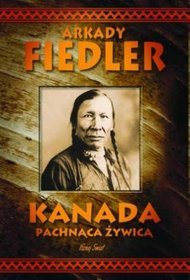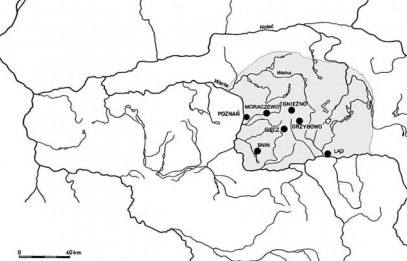History /
Polish Royal Bastards [23]
The bizzarre story of Brizardier
The firstborn son of King Jan Sobieski, bearing the name Brizardier, aroused the interest of historians for a long time. His silhouette has blurred, however, firmly in the darkness of history, so that there were even people doubting in his existence. However, it seems that there can be no doubt about him, as his surname surfaced in 1676, when a secret envoy of King Jan Sobieski intervened on his account at King Louis XIV.
Brizardier was the result of a fleeting love affair of Jan Sobieski, who arrived on the Seine during his trip to Europe in June 1646. No one had not yet thought that this seventeen years young man, the son of the castellan of Cracow, in less than thirty years would be crowned Polish King, and that history would even nickname him "the defender of Christianity."
Sobieski settled in Paris at the Hotel de Brisach, which perhaps is the source of the strange name Brizardier. We do not know which one of the Parisian ladies had become his mistress. Rumors of dealing with Marquise de Sévigné should be probably put between fairy tales as the young castellan's son probably did not have access to the topmost French aristocracy. One should rather look for his fleeting mistress among the lower class women employed at the court - perhaps a governess, a dresser or a singer. It is much easier to determine the date of birth of his illegitimate son. Sobieski was in Paris between June 1646 and April 1647, so the boy was most likely born in 1647. Probably the young father he had never seen his son, of whose existence he learned later.
The name Brizardier surfaced in the late sixties of the seventeenth century. The young man was little older than twenty years old and he was a sergeant in the Nantes army. He did not make, however, a military career, as it stood in the way of his passion for libertarian practices. He created a mystical aura around himself, proclaiming of being able to fulfill any wishes of women. The only condition was that a woman had to receive raw penance from him. The fame of the inspired sergeant spread throughout Brittany and he began to receive most illustrious ladies. Among them were Madam President de Magnan, Countess de Kerollin, Miss de Talet, and other aristocrats and wives of local notables. Madam President had asked him to obtain the succession, which involved death of three people, Countess Kerollin had asked him for recipe for gold making, and Miss de Talet for a rich husband.
Brizardier ordered the women to undress and he whipped them with twigs till bleeding. When a candidate for a rich man's wife could not endure the flogging, she called to him, "Monsieur Brizardier, not that much! I would rather have him not that rich."
The inspired sergeant carried his flogging practices until the day when he was exposed by the janitor of the local parliament, certain Bohamont, who noticed his daughters regularly visiting the barracks. Brizardier was put on trial, accused of libertinism, and he faced the gallows. Through the intercession of his clients, Breton ladies aristocrats, he was sentenced to the galleys only. He was not the galley prisoner for long, because his patronesses were granted his pardon and even found a job for him in the Queen's office.
When Jan Sobieski became King of Poland he decided to help his firstborn son, but he did so in such a clumsy manner that it almost led to an international scandal. He sent his trusted envoy to Louis XIV asking for permission to purchase a landed property in France, which would be linked to the title of a prince. No name was mentioned but Louis was convinced that this was meant to be the Polish Queen's father, the Marquis d'Arquien. Imagine his surprise when he learned that the protégé of the Polish king was a modest clerk, working in the office of his wife. But he received a handwritten letter from Sobieski, who explained that Brizardier was a descendant of an ancient Polish family, a relative of the king, and that he, Sobieski, grants his mother the title of the "First Lady of Poland with the golden key".
The distrustful King of France had ordered checking that information and found that the "First Lady of Poland" did not exist. Caught in a lie King John began to wriggle in more lies. He wrote that his request regarding Brizardier was prompted by the Queen of France, from whom he had received a handwritten letter along with her portrait adorned with diamonds. This completely unbelievable story resulted in another investigation by suspicious Louis, who thought that the protégé migh have been the illegitimate son of his wife.
This presumption was obviously absurd, because Brizardier was nine years younger than the Queen. The investigation revealed, however, that the Queen's clerk was a former libertine and a galley slave. It was enough to send the first Sobieski's son to the Bastille. But he was on the loose after a few months, thanks to his connections. He had not a small capital to his disposal at that time, so one should assume that had has received some support from his father.
The Brizardier incident affected the Polish-French relations, as Louis XIV could not forgive Sobieski for his deceptions and refused henceforth to refer to him per "Your Majesty" in their correspondence. The further fate of the royal bastard remains unknown. King John III, at least officially, did not take any more steps associated with this person. The worst looser in this whole story came to be the Sobieski's father in law, Marquis d'Arquien, who never received the princely title from Louis XIV.
 PolishForums LIVE / Archives [3]
PolishForums LIVE / Archives [3]


